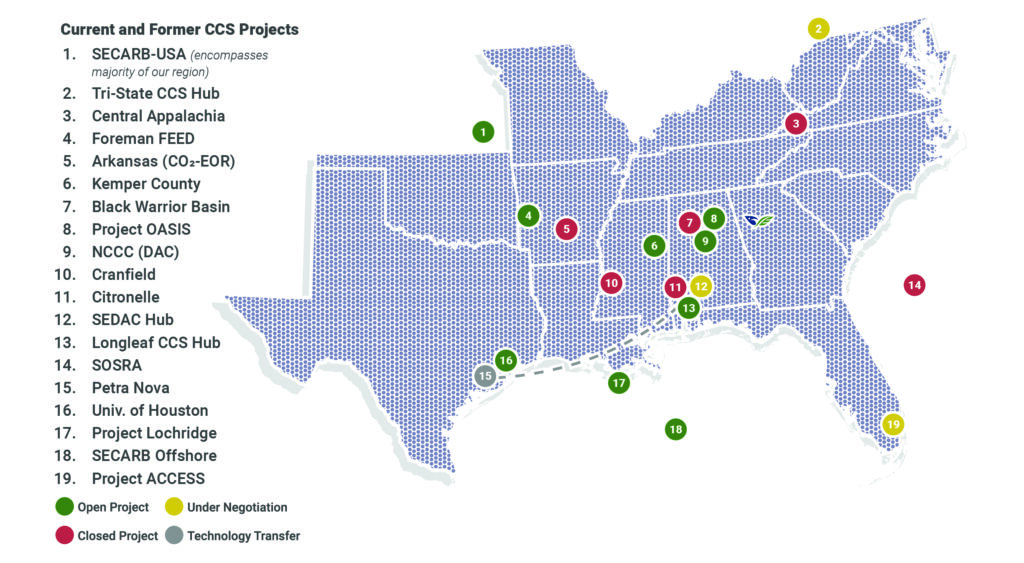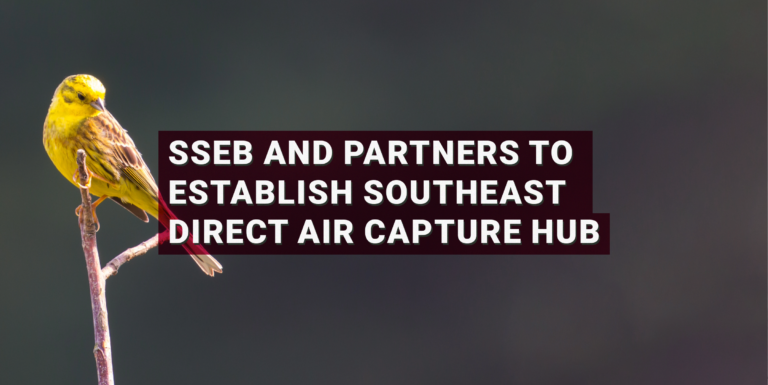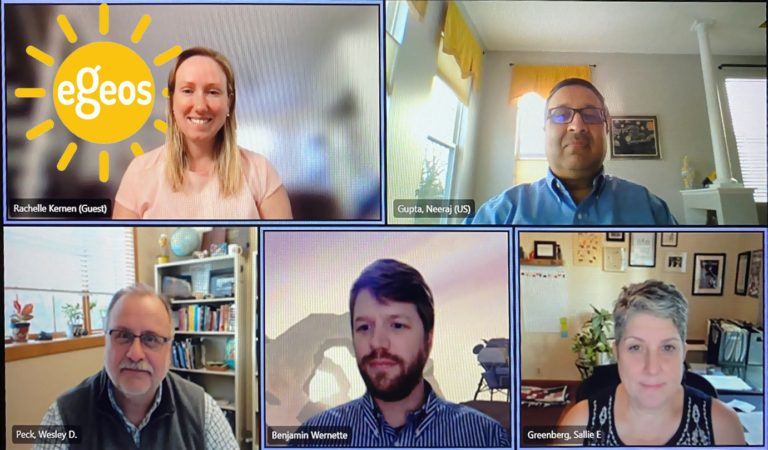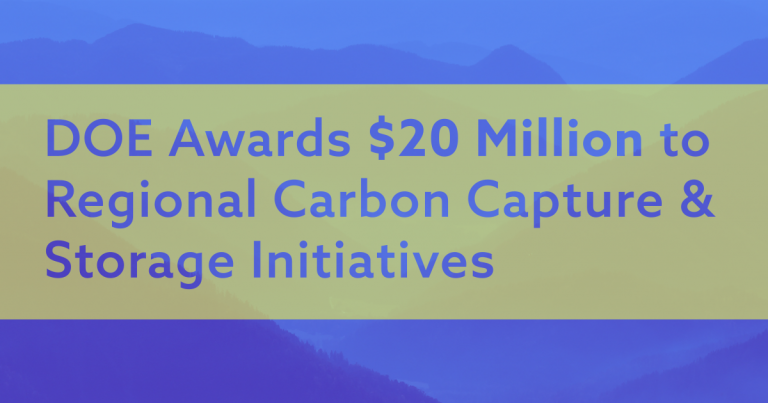It’s been awhile since our 63rd Annual Meeting and our last big update on current Board projects. We’ve been busy—our carbon management division continues to grow to include more than nine active carbon capture and storage (CCS) projects and three more under negotiation as detailed in the map below.

Projects with significant updates and milestones are listed below. If you have any questions about our current or former carbon management projects, please contact Turney Foshee.
Longleaf CCS Hub
The Longleaf CCS Hub seeks to significantly reduce the carbon emissions of South Alabama through the development of a stacked storage hub in proximity to Bucks, Alabama. Longleaf is a public-private partnership with site host and Project Developer, Tenaska. The Project Team also includes Advanced Resources International, Crescent Resource Innovation, ENTECH Strategies, the Geological Survey of Alabama, the University of South Alabama, and Williams.
On January 18, 2024, SSEB and team members from Advanced Resources International and Tenaska participated in the Project Longleaf DOE-NETL kick-off meeting, which was held in Morgantown, West Virginia. Further, SSEB participated in a community outreach event in Mobile, Alabama, that featured a public kick-off meeting on March 22, 2024. Dr. Benjamin Wernette was one of several speakers, including project team members and community leaders, who highlighted both the project and its goals as well as the positive impact of CCS on the environment and local economies. The other speakers for the event included Bret Estep (Tenaska), Bradley Byrne (former Congressman and current president of the Mobile Chamber), Connie Hudson (Mobile County Commissioner), and Jim Barber (Chief of Staff for the City of Mobile). As part of this event, Tenaska created a video highlighting the benefits of the Longleaf CCS Hub project for South Alabama, issued a media advisory about the event and distributed a news release to Alabama media and industry trade publications. This yielded significant media coverage, particularly in Mobile County. As a result of this event and related activity, the project stakeholder list grew significantly, from 121 stakeholders at the end of the previous quarter to 234 at the end of Q1 2024.

Project OASIS
The “Optimizing Alabama’s CO2 Storage in Shelby County: Project OASIS” CarbonSAFE Phase II Project seeks to build on regional data sets that demonstrate that the subsurface within Shelby County, Alabama has the potential to store commercial volumes of CO2 safely, permanently, and economically. Work on this project is conducted under the purview of the Southern States Energy Board (lead), Advanced Resources International, Alabama A&M University, Auburn University, Crescent Resource Innovation, Oklahoma State University, Southern Company and Alabama Power Company, Westervelt, and Baker Hughes.
Site construction began on September 3, 2023. The well was spud on September 28, 2023, and drilling took place throughout October and the first week of November. In total, Westover #2 was drilled to a total depth of 6,725 ft. Whole core, sidewall core, and down-hole data wireline data were collected.
To support broader engagement, SSEB informed regional industry partners of the Project’s field program and invited the local lime and cement companies to the November 3, 2023, open house. Local industry stakeholders that participated in the open house included Alabama Oil and Gas Board, Alabama Power Company, Argos, Carmeuse, Lhoist, Pure Sky, and Carbon America.



Foreman Cement Plant Carbon Capture and Storage FEED
The Foreman Cement Plant Carbon Capture and Storage (CCS) FEED project seeks to develop a CCS integrated solution to support reduction of carbon dioxide (CO2) emissions associated with cement manufacturing and to improve the sustainability of the Ash Grove Foreman Cement Plant in Foreman, Arkansas. To accomplish this, the Project Team will execute and complete front-end engineering and design (FEED) studies for an integrated CCS system. This will include all necessary infrastructure required for a fully integrated carbon capture, transportation, and storage project. As part of the FEED study, the Project Team will consider Air Liquide’s CryocapTM technology as the basis for the post-combustion CO2 capture and processing system.
In parallel, the Project Team will execute a stratigraphic test well to support the development of its Underground Injection Control (UIC) Class VI Permit Application for submission to the U.S. Environmental Protection Agency (EPA). In addition, the Project Team will submit a National Environmental Policy Act (NEPA) Environmental Information Volume (EIV) based on the integrated CO2 capture, transportation, and storage project to identify all potential environmental impacts of a commercial project.
The Project was officially awarded on January 1, 2024. As part of Budget Period 1, the Project Team issued an Expression of Interest and a subsequent Request for Proposals seeking bids from interested parties to join the project as a CO2 offtaker. In parallel, the Project Team has been working with OCED to complete a “Baseline Validation” process in which subject matter experts evaluate the Project’s capture technology, transportation route, and storage site location to identify strengths and weaknesses coupled with mitigation strategies to improve the Project’s outcomes.
SECARB-USA
The “Southeast Regional CO2 Utilization and Storage Acceleration Partnership” (SECARB-USA) project supports the U.S. Department of Energy (DOE) Office of Fossil Energy’s mission to help the United States meet its need for secure, affordable, and environmentally sound fossil energy supplies by utilizing the advancements made by the current Regional Carbon Sequestration Partnership (RCSP) Initiative to continue to identify and address knowledge gaps. The primary objective of the project is to identify and address regional onshore storage and transport challenges facing commercial deployment of carbon dioxide (CO2) capture, utilization, and storage (CCUS) technologies. The Southern States Energy Board (SSEB) is the award Recipient. The project team is composed of Advanced Resources International, Auburn University, the Bureau of Economic Geology at the University of Texas at Austin, Gerald R Hill PhD Inc (dba), Crescent Resource Innovation, Environmental Defense Fund, Geological Survey of Alabama, Los Alamos National Laboratory, Oklahoma State University, SAS Institute, and Virginia Center for Coal and Energy Research at the Virginia Polytechnic Institute and State University. The Project Team coordinates and collaborates closely with a broad industry network.
Recent federal investments (2021 Bi-Partisan Infrastructure Law), enhancements to the IRS section 45Q tax credit (2022 Inflation Reduction Act), and state legislative activities along with legacy research have provided a backstop to de-risk CCUS projects for developers. As a result, historic interest in CCUS has been observed and a series of high ambitious projects have been announced throughout the U.S. Even with these tailwinds, public opposition to these projects is on the rise, with notable examples in the Midwest and Louisiana. Further complicating this matter is the general lack of available data surrounding public sentiment as it relates to CCUS.
To address these challenges, SSEB personnel identified an opportunity to evaluate public comments submitted in response to Louisiana’s Class VI primacy application to identify current sentiment toward CCUS in an effort to identify critical messaging priorities for the CCUS community moving forward. This work was conducted in coordination with SAS and utilized their data dashboard. As part of this, an application programming interface (API) with www.regulations.gov was established to retrieve public comments from the Louisiana UIC Program; Class VI Primacy docket (Docket ID No. EPA-HQ-OW-2023-0073). Individual letters with corresponding metadata (name, organization, location where provided) were saved and individual statements from each letter were extracted. Deduplication ensured that matching statements were included in the dataset only once. Unique themes and subthemes were identified, and text analytics was utilized to identify specific recommendations. A large language model was used to summarize key public comment patterns, and sentiment analysis was used to identify high-priority topics. Over 41,000 comments were received in response to Louisiana’s UIC Class VI state primacy application. Of these, 727 were identified as unique, substantive, comments while the remainder represented mass mailer campaigns or duplicate text. Even still, this represents a significant increase in public interest when compared to the North Dakota and Wyoming UIC Class VI primacy applications which received a total of 15 and 7 unique comments, respectively. The results of this work were shared with regulators across the SECARB-USA contemplating primacy, and a broad network of industry partners with the goal of assisting in proactive messaging campaigns. A summary of this work is shown below. The full graphic can be viewed here.

With the Louisiana case study complete, SSEB is working with its partners to develop additional examples of applying text analytics and large language models to the CCUS space. As part of this, news articles in individual states are being evaluated by students at Oklahoma State University to understand sentiment toward CCUS, and whether regional differences are observed. Initial analyses suggest that sentiment skews negative in news articles in California over a two-year period (2021 to 2023), suggesting that stakeholders may interact with negative articles before ever speaking with a project developer.
Our Work. Your Future.
For more than two decades, the Southern States Energy Board has worked to remove the boundaries surrounding carbon capture and storage development with the goal of providing budgetary boosts for sustainable industrial practices and municipal improvements across the Southeast.
The Board continues to explore new projects and avenues for the successful deployment of CCUS technology across our membership region. We anticipate three more project awards soon and many more on the horizon. Ensure you’re signed up for our mailing list to receive all future updates on our current projects and upcoming events.




